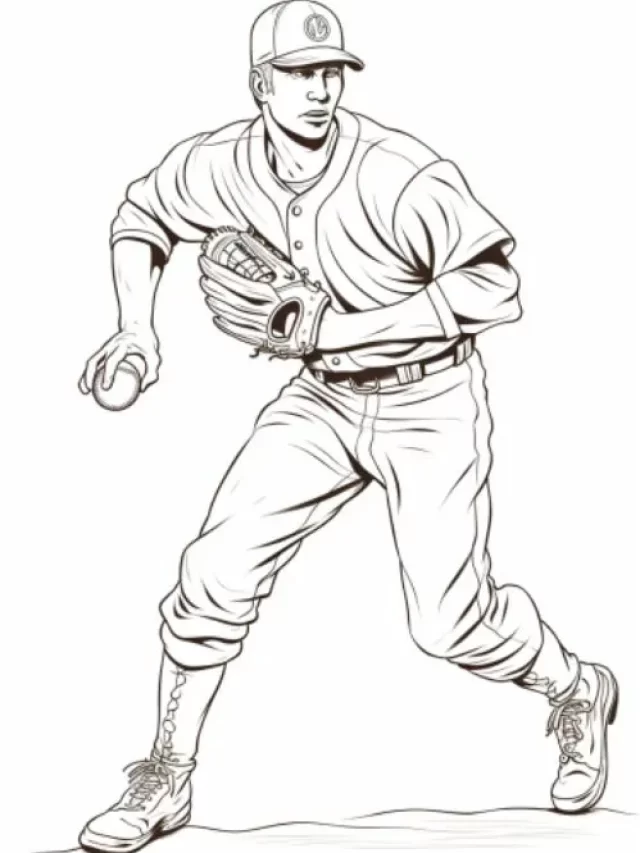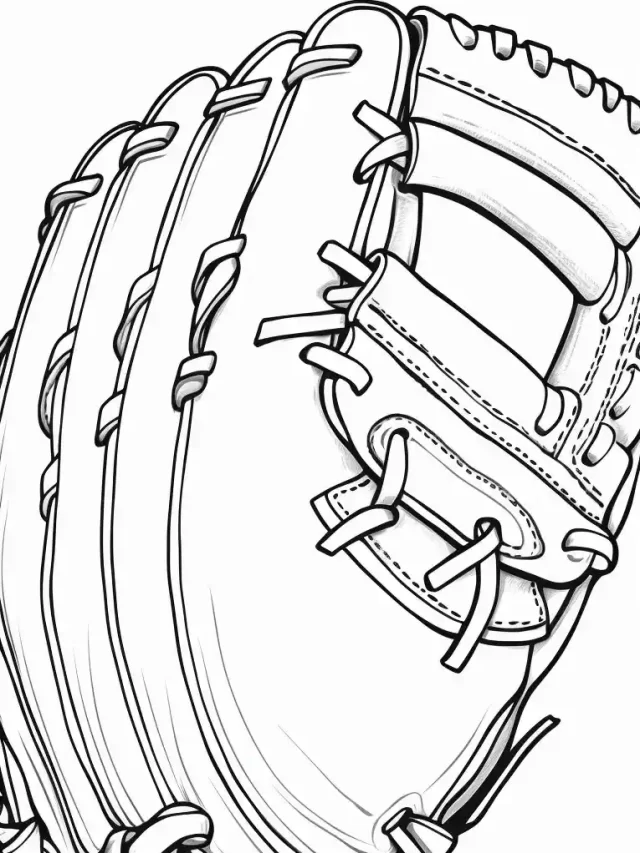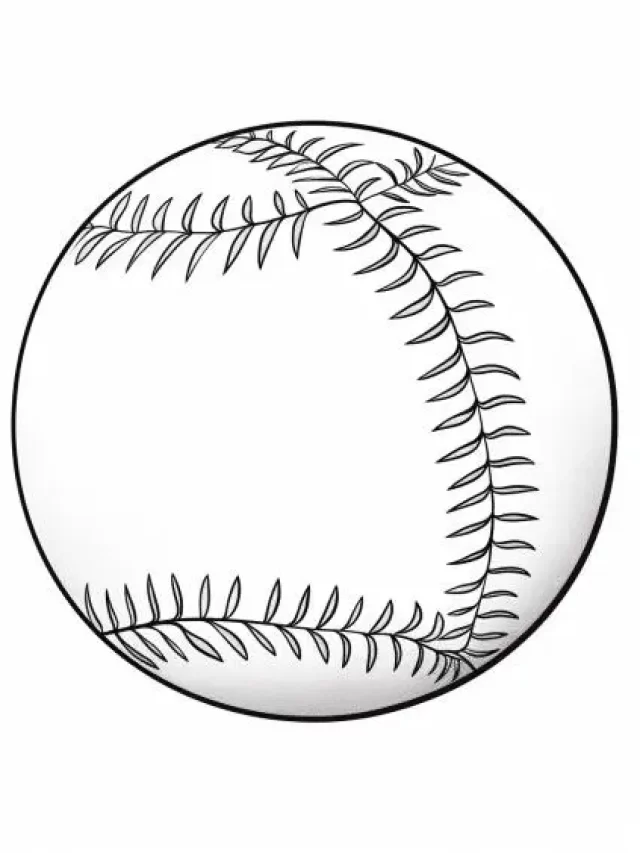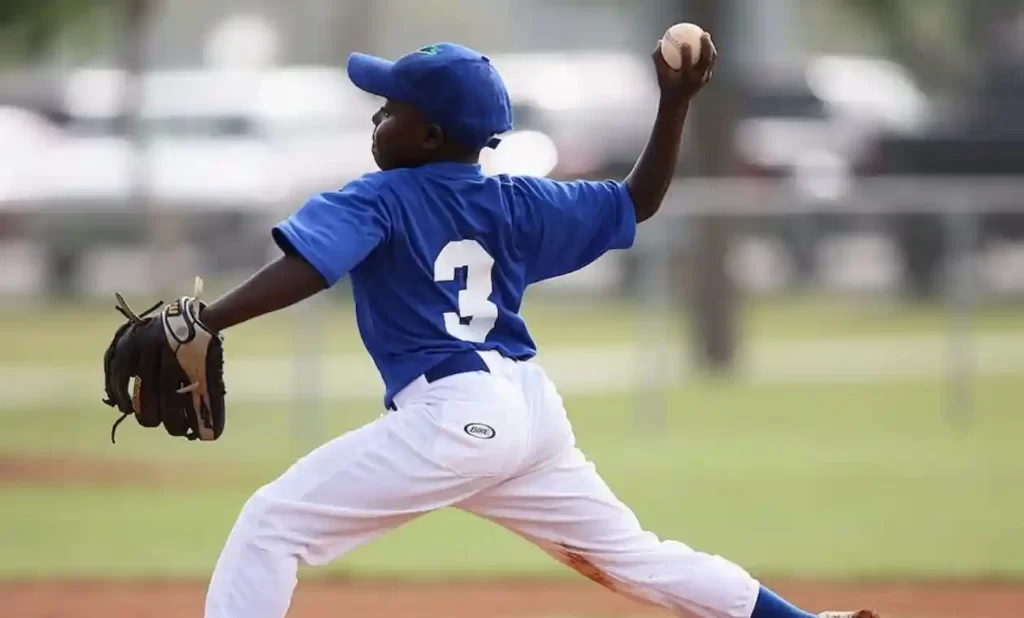DFA in Baseball: What Does it Really Mean?
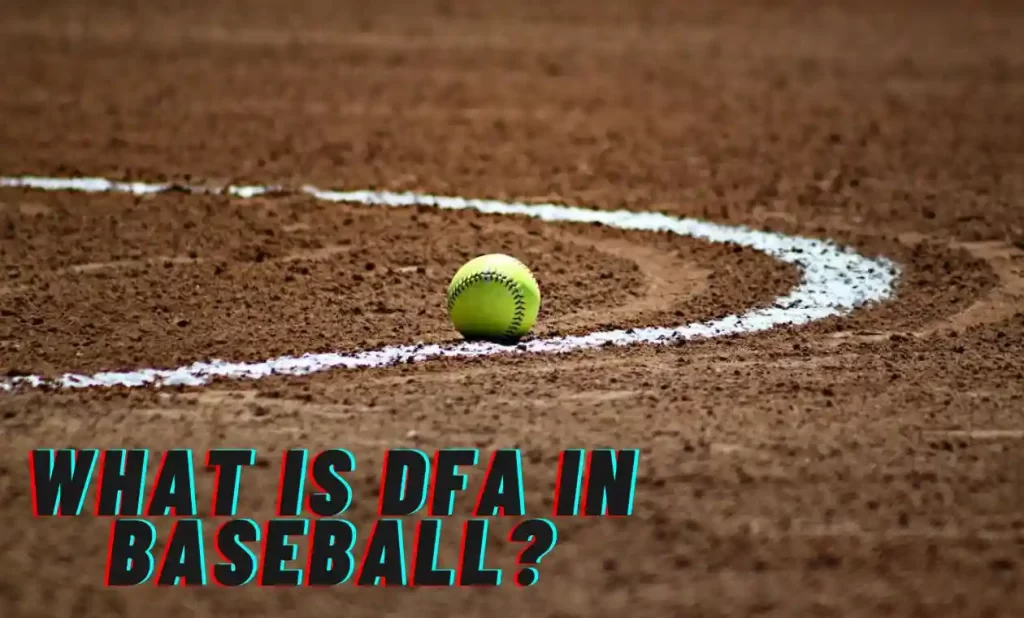
Welcome to the world of baseball, where the lingo can sometimes sound like a secret code. Today, we’re decoding one of those puzzling baseball terms for you: DFA. And guess what? It’s not rocket science; it’s just baseball!
Why This Guide Matters for Beginners
If you’re new to baseball (or if you’ve been watching but secretly wondering what DFA means), this guide is your golden ticket to understanding a vital part of the game. DFA might seem like a bunch of letters thrown together, but it’s a term that can change the fate of a player and even a team.
Imagine being at a baseball game with your buddies, and someone mentions, “Oh, they DFA’d him.” You want to join the conversation, right? You don’t want to be the one scratching your head, wondering if they’re speaking in code.
That’s where this guide comes in. We’re here to demystify DFA for you, no secret handshakes required. By the time you finish reading, you’ll not only know what DFA means but also why it’s a big deal in the world of baseball.
So, grab your baseball cap, and let’s dive into the world of DFA!
Also Read: Inside Baseball Core Cover
What is DFA in Baseball?
Okay, first things first—DFA stands for “Designated for Assignment.” But hey, no need to memorize those fancy words just yet. We’re breaking it down for you.
DFA in Simple Terms
Imagine you’re playing baseball with your friends, and someone says, “You’re designated to sit on the bench for a while.” Well, in the big leagues, it’s a bit like that. DFA is like the bench, but for professional baseball players.
Here’s the deal: Every Major League Baseball (MLB) team has a roster, like a list of players who are in the active squad. It’s like picking teams for a game, but at a pro level. Now, if a team wants to make some changes, they might say, “Hey, you’re DFA’d.” It’s like telling a player, “You’re off the active squad for now.”
But wait, there’s more! When a player is DFA’d, it’s not a one-way ticket out of baseball. Nope, it’s more like a timeout. They’re taken off the active roster, and the team has some options.
So, in simple terms, DFA is like a baseball timeout. It’s a way for teams to make changes in their lineup without saying goodbye forever.
Now that you know what DFA means in baseball, let’s find out why teams use it. Hint: It’s not just for fun!
Why Do Teams Use DFA?
Ah, the intriguing world of DFA (Designated for Assignment). You might be wondering, “Why do teams use it?” Well, let’s peel back the baseball curtain and take a look.
Keeping the Roster Shipshape
Imagine you have a huge toy box, and it’s overflowing with action figures and toys. It’s a blast, but it’s getting crowded. Teams feel the same way about their rosters. They need space to make room for new players or different strategies.
Reason #1: Making Roster Space
Teams use DFA to clear a spot on their active roster. It’s like saying, “Sorry, Mr. Player, but we need to make some room for someone else.” Maybe they have a hotshot rookie they want to bring up from the minors, or they’ve signed a new player they want on the field.
Reason #2: Evaluating Player Performance
Sometimes, a player hits a rough patch. Maybe they’re not hitting the ball well or struggling with their pitches. Teams use DFA to give players a little breather and a chance to work on their skills.
Reason #3: Contract Moves
Contracts in baseball can be like a puzzle with a thousand pieces. Sometimes, a player’s contract situation might not fit the team’s plans anymore. DFA allows teams to shuffle those contract pieces around.
It’s All About Strategy
Now, you might be thinking, “Why not just trade the player or release them?” Good question! Teams use DFA because it gives them more options and time to make decisions. It’s like a chess move in the game of baseball strategy.
So, in a nutshell, teams use DFA to keep their roster shipshape, evaluate player performance, and play the contract puzzle. It’s all about making the team the best it can be. Now that you know why teams use DFA, let’s dive deeper into how the whole DFA process works.
Also Read: How Long Is a Baseball Game?
The DFA Process
Buckle up, rookie! We’re about to dive into the thrilling world of the DFA (Designated for Assignment) process. It’s like a suspenseful plot twist in a baseball game.
Step 1: Roster Overcrowding
Picture a crowded subway train during rush hour. That’s what a baseball roster might feel like sometimes—packed with players. When a team decides it’s time for a change, they look at their roster and say, “We need some elbow room.”
Step 2: Player Selection
So, who’s the lucky player? Teams choose a player from their roster who they want to DFA. It’s not random; it’s a strategic move. Maybe the player hasn’t been performing well, or there’s a new talent they want to bring in.
Step 3: The DFA Announcement
This is the moment when the player gets the news. The team tells them, “Hey, you’ve been designated for assignment.” It’s like saying, “You’re on the bench for now, buddy.” The player is off the active roster.
Step 4: The Clock is Ticking
But wait, there’s a time limit! After the DFA announcement, the team has a short window (usually up to 7 days) to make a decision about the player’s future. It’s like a ticking clock in a movie—suspenseful!
Step 5: Player’s Fate
During this time, a few things can happen:
- The player might be traded to another team.
- They could be released from the team, becoming a free agent.
- Or, they might be assigned to the team’s minor league affiliate.
Step 6: The Outcome
The suspense ends when one of these options is chosen. It’s like the final scene in a movie when everything is revealed. The player’s fate is sealed.
And that, my friend, is the DFA process in a nutshell. It’s a strategic move by teams to manage their roster and make room for change. Now that you know how it works, you’re ready to tackle the next inning of our DFA journey.
What Happens to DFA’d Players?
All right, we’ve sent a player to the bench with a DFA (Designated for Assignment). But what’s next for them? It’s like a choose-your-own-adventure story, but in baseball!
Option 1: The Trade Game
Imagine you have a rare baseball card, and your buddy wants it really badly. You might make a trade, right? Same deal here! The player who’s been DFA’d could be traded to another team. It’s like swapping baseball cards, but with real-life players.
Option 2: Hitting the Free Agent Market
Now, let’s say nobody wants to trade for that baseball card. In that case, the player becomes a free agent. It’s like setting that card free in the wild, hoping someone else will pick it up. Free agents can sign with any team that’s interested.
Option 3: The Trip to the Minors
Sometimes, teams decide to give their player another shot at the big leagues. They might send them to the minor leagues to work on their skills. It’s like sending a player back to training camp to level up.
It’s a Bit Like Baseball Limbo
You see, being DFA’d doesn’t mean the end of a player’s career. It’s more like a timeout. They’re taken off the active roster, but their baseball journey isn’t over. They might find a new home in another team, or they could work their way back to the majors from the minors.
So, what happens to DFA’d players? It’s a bit of a mystery until the team makes its move. But remember, it’s all part of the baseball game—full of surprises, twists, and turns.
And with that, you’re now in the know about what goes down when a player gets DFA’d. Next up, we’ll take a swing at understanding how DFA impacts both teams and players.
Also Read: What Is a Balk in Baseball?
Impact on Teams and Players
Alright, we’ve sent a player to the bench with that fancy DFA (Designated for Assignment) move. But how does it really impact the game? Let’s dig into it.
For Teams: Roster Flexibility
Picture a team’s roster like a puzzle board. DFA is like moving puzzle pieces to create the perfect picture. Teams use it to free up roster spots for new players or different strategies. It’s like a coach drawing up new plays on a chalkboard.
For Players: Rollercoaster Ride
For the player, getting DFA’d can be a bit like a rollercoaster. On one hand, it’s a pause button on their big league journey. On the other hand, it’s a chance to improve their skills or find a new team.
Contract Shuffle
Contracts in baseball are a bit like those Rubik’s Cubes—complex and colorful. DFA can be part of a team’s strategy to move those contract pieces around. It’s like solving the contract puzzle to make it all fit.
The Wait Game
After a player is DFA’d, there’s a waiting game. Teams have a limited time (usually up to 7 days) to decide what to do next. It’s like that moment in a game when the clock is ticking, and the tension is high.
Making Choices
During that time, teams have to make choices:
- They might trade the player to another team.
- They could release the player, and they become a free agent.
- Or, they might send the player to the minor leagues for some extra training.
It’s All About Strategy
Remember, baseball is a bit like chess. Teams use DFA strategically to make moves that benefit them in the long run. It’s not just about who’s hitting the most home runs—it’s also about managing the roster and contracts.
So, there you have it. DFA affects teams, players, and even those tricky contracts. It’s all part of the grand game of baseball strategy. Now, let’s step up to the plate and look at some real-world examples of DFA in action.
Real-World Examples
Alright, it’s storytime, folks! We’re about to look at some real-life moments where DFA (Designated for Assignment) shook up the world of baseball.
Example 1: The Surprising Star
Imagine you have a friend who’s a great singer, but they suddenly decide to take a break from singing in the shower. That’s kind of what happened in 2018. The Oakland Athletics DFA’d a player named Mark Canha, who had been doing pretty well. But hey, even stars need a shower break sometimes.
Example 2: The Power Hitter
Now, picture a player who’s known for smashing those home runs. In 2020, the New York Yankees made headlines when they DFA’d Miguel Andújar. He was a fan favorite known for his power hitting, but the Yankees had some roster moves to make. It’s like benching your star quarterback for a game.
Example 3: The Unexpected Twist
In 2019, the San Francisco Giants had a surprise for everyone. They DFA’d Joe Panik, a player who had been with the team for years. It’s like your favorite TV show suddenly writing off a main character. But in baseball, decisions like these are all about strategy.
Example 4: The Comeback Kid
Sometimes, DFA stories have a happy ending. In 2019, the Washington Nationals DFA’d Gerardo Parra. But guess what? He made a triumphant return later in the season and became a fan favorite. It’s like a superhero coming back in the final act to save the day.
The Takeaway
These real-world examples show that DFA is a common move in baseball. It’s not just about performance; it’s about team strategy, roster management, and making the best decisions for the game. So, next time you hear about a player getting DFA’d, you’ll know it’s just another chapter in the ever-exciting book of baseball.
And speaking of chapters, our DFA journey isn’t over yet. Up next, we’ll explore how players can avoid being DFA’d. Hint: It involves some good ol’ baseball wisdom.
How to Avoid DFA
So, you’ve seen how DFA (Designated for Assignment) can be a bit like a timeout for players. But guess what? Players can take some steps to stay in the game and avoid being DFA’d. Here’s the playbook:
Tip 1: Bring Your A-Game
Imagine you’re at a pizza-eating contest. You want to win, right? Same goes for baseball. Players need to bring their A-game every time they step on the field. It’s like trying to eat the most pizza slices without getting stuffed.
Tip 2: Work on Weak Spots
Even the best pizza eaters can have trouble with crusts. In baseball, if a player has a weak spot in their game, they should work on it. Whether it’s hitting, pitching, or fielding, practice makes perfect.
Tip 3: Be a Team Player
Picture this: You’re in a game of tag, and your teammates are counting on you. In baseball, being a team player is a must. Help your teammates, support the coach’s decisions, and be a positive presence in the dugout.
Tip 4: Stay Positive
In baseball, as in life, attitude matters. Keep your head up, even when things aren’t going your way. It’s like smiling through rainy days. A positive attitude can go a long way.
Tip 5: Keep Learning
Baseball is a bit like school. Players should keep learning and improving. Study the game, watch other players, and soak up as much baseball knowledge as you can.
Tip 6: Be Adaptable
Sometimes, baseball throws curveballs. Players should be adaptable and ready to take on new challenges. It’s like switching from pepperoni to Hawaiian pizza—it’s still delicious.
Tip 7: Embrace Feedback
Imagine you’re trying out a new dance move, and your friend gives you tips. In baseball, players should embrace feedback from coaches and teammates. It helps them grow and get better.
Tip 8: Stay Healthy
You wouldn’t eat a whole pizza if you’re not feeling well, right? Players should take care of their bodies. Stay healthy, get enough rest, and eat well.
Tip 9: Never Give Up
Remember, in baseball, just like in life, never giving up is key. Keep working hard, stay determined, and keep chasing your baseball dreams.
So there you have it, the player’s guide to avoiding DFA. It’s like following a recipe for success in baseball. With these tips in your toolkit, you’ll be on your way to becoming a baseball superstar.
And now, as we near the end of our DFA journey, it’s time to wrap things up with some final thoughts.
In Crux
Well, folks, we’ve reached the end of our adventure into the land of DFA (Designated for Assignment). Before we bid farewell, let’s sum up what we’ve learned.
The DFA Recap
DFA isn’t just a jumble of letters—it’s a crucial part of baseball strategy. Teams use it to make room for new players, shuffle those contract puzzle pieces, and even give players a chance to improve.
For players, avoiding DFA means bringing their A-game, working on weak spots, being team players, and staying positive. It’s like following a recipe for success in baseball.
Why It Matters
But why should you care about DFA? Well, understanding it is like knowing the secret handshake to join the baseball conversation. It’s about being in the know and not scratching your head when someone mentions, “They DFA’d him.”
Plus, it’s a peek behind the baseball curtain. You get to see the strategy, the chess moves, and the ever-exciting world of America’s pastime.
Keep the Baseball Magic Alive
So, whether you’re a seasoned baseball fan or just getting started, knowing what DFA means is like having a front-row seat to the game. It’s part of what makes baseball a blend of strategy, skill, and a dash of unpredictability.
Now that you’re armed with the knowledge of DFA, you can enjoy the game even more. And who knows, maybe you’ll impress your friends with your newfound baseball wisdom.
So, keep the baseball magic alive, cheer for your favorite team, and remember that DFA is just another chapter in the grand story of America’s favorite pastime.
And with that, we wrap up our journey through the world of DFA. Thanks for joining us on this adventure, and may your baseball knowledge continue to grow with each game you watch.
FAQs about DFA in Baseball
[sp_easyaccordion id=”795″]

Meet Daniel Anderson, the heart and soul behind Baseball Pro Picks. At 49, Daniel’s life has revolved around baseball, a passion that’s as strong today as it was when he first fell in love with the game. Living in the USA, Daniel has dedicated countless hours to watching, analyzing, and understanding every pitch, hit, and home run, making almost no game missed. His deep-rooted love for the sport is matched only by his commitment to sharing insightful, expert analysis with fellow baseball enthusiasts. With decades of experience and a keen eye for the game’s nuances, Daniel brings a unique perspective that enriches Baseball Pro Picks. Trust Daniel to guide you through the intricacies of baseball with the authority and trustworthiness of a true aficionado.


